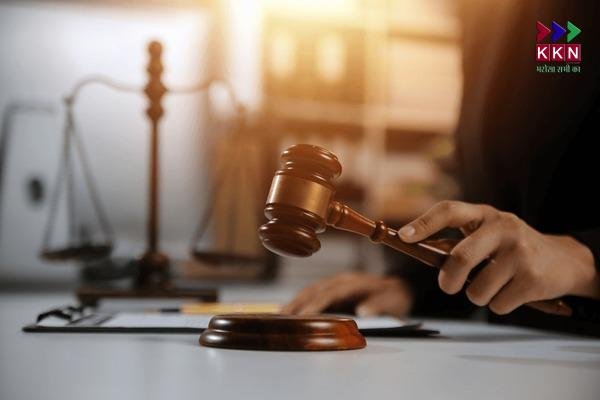In a landmark decision, a judge has ruled that Article 20(3) of the Indian Constitution ensures that no accused person can be compelled to testify against themselves. This ruling comes in the wake of a case where the accused was directed to present a specific document in court. The judge emphasized that under the Indian legal framework, compelling an individual to act as a witness against themselves is a violation of their rights.
Article Contents
The ruling reaffirmed the constitutional protection granted to individuals under Article 20(3), which clearly states that no person accused of any offense shall be compelled to be a witness against themselves. This provision is a crucial part of India’s legal safeguards against forced confessions or involuntary testimony, reflecting the principle that justice cannot be achieved through coercion.
What Did the Judge Say in the Decision?
The judge stated that under Article 20(3), compelling the accused to submit documents or testify in a manner that could implicate them would be a violation of constitutional rights. The ruling emphasized the importance of protecting an accused person’s right to silence and freedom from self-incrimination.
This judgment is seen as an important reaffirmation of fundamental rights in the Indian criminal justice system. The judge’s decision has also sparked a wider discussion about the boundaries of legal authority, particularly concerning the protection of individuals’ rights during the trial process.
The Importance of Article 20(3) in Indian Law
Article 20(3) of the Indian Constitution is a key provision that protects individuals from self-incrimination. It ensures that no person can be forced to testify or produce evidence that could potentially incriminate them. This is a critical aspect of criminal law in India, aimed at maintaining fairness in the judicial process.
The article protects an individual’s right to remain silent, meaning that no accused person can be forced to give evidence that could harm their own defense. This protection is in line with international human rights standards, particularly those enshrined in documents such as the Universal Declaration of Human Rights and the International Covenant on Civil and Political Rights (ICCPR).
Implications of the Ruling
The court’s decision to prevent the accused from being forced to produce evidence against themselves has significant implications for future cases. It reinforces the principle that individuals are entitled to a fair trial, where their rights are respected, and they cannot be coerced into making statements or presenting documents that may incriminate them.
This ruling could also serve as a precedent for future cases where the rights of the accused are in question. Legal experts believe that this decision strengthens the defense against any form of coercion in the legal system, ensuring that all accused individuals have a fair chance to present their case without the fear of being forced to self-incriminate.
Context of the Case
This ruling was made in the context of a legal case in which the accused was asked to present a document that could potentially be used against them. The accused argued that forcing them to present such a document would violate their right under Article 20(3). The judge, after careful consideration, agreed with this argument and ruled that the accused could not be compelled to produce the document.
The case highlights the delicate balance that the judicial system must maintain between ensuring the due process of law and protecting the fundamental rights of individuals. The judge’s decision demonstrates a commitment to upholding the rights of the accused while ensuring that justice is not compromised.
Why is This Ruling Significant?
The ruling is significant because it reiterates the importance of protecting individual freedoms within the Indian judicial system. In a country with a large population and a complex legal system, safeguarding individual rights is essential to maintaining the integrity of the judicial process.
This decision is also seen as a strong message to law enforcement and the prosecution that the rights of the accused cannot be overlooked or undermined in the pursuit of justice. It reaffirms that the legal system must be fair, impartial, and grounded in respect for human dignity and individual rights.
Furthermore, this decision strengthens public confidence in the legal system by showing that the judiciary is committed to protecting the fundamental rights of all individuals, regardless of the charges they may face.
The Role of Legal Protections in the Indian Criminal Justice System
In India, legal protections such as Article 20(3) play a vital role in ensuring that the criminal justice system remains just and equitable. The protection from self-incrimination ensures that individuals are not forced into confessions or compelled to give evidence that may be used to convict them.
Legal scholars often argue that such protections are crucial in preventing abuses of power within the criminal justice system. Without these safeguards, there would be a greater risk of coercion and unfair trials, where the accused might be forced to implicate themselves, regardless of their actual guilt or innocence.
In conclusion, the judge’s ruling in this case serves as a powerful reminder of the importance of protecting individual rights within the criminal justice system. By reaffirming the protections provided under Article 20(3), the judiciary has ensured that the right to silence remains a cornerstone of Indian law.
This decision also highlights the broader commitment to human rights and justice, ensuring that no person is forced to testify against themselves or produce evidence that could lead to their conviction. It serves as a key reminder that, in a democratic society, the rights of individuals must always be safeguarded, even in the face of criminal accusations.
As the legal community continues to reflect on this decision, it will undoubtedly serve as an important precedent for future legal cases and may lead to further developments in the protection of rights within the Indian justice system.




